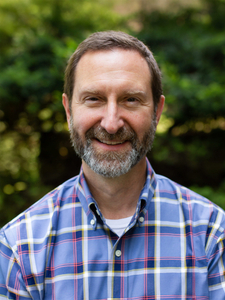Part 6 of a 7 part series: Part 1 | Part 2 | Part 3 | Part 4 | Part 5 | Part 7
Counseling and Physiology Class: Post 6 (OCD)
As an extension and application of the material on psychiatry, we recently covered the topic of obsessive-compulsive disorder (OCD) in class. People with this struggle find that they have persistent and intrusive, anxiety-producing thoughts (obsessions) that are usually (but not always) associated with behaviors/rituals (compulsions) that lessen the anxiety. A typical example would be the persistent doubt “Did I turn off the stove?” coupled with repeated checking to make certain. Like all psychiatric diagnoses found in the DSM (Diagnostic and Statistical Manual of Mental Disorders) it is a description of a particular experience, but in itself it is not an explanation for the problem.
Researchers have identified what they call “belief domains” associated with OCD. These are the characteristic beliefs that underlie the struggle. They include:
-
- Inflated responsibility—the belief that you have power to bring about or prevent negative outcomes
-
- Over-importance of thoughts—the belief that the mere presence of a thought indicates it’s important.
-
- Overestimation of threat—an exaggeration of the probability or severity of harm.
-
- Importance of controlling thoughts—placing too much value on exerting complete control over intrusive thoughts.
-
- Intolerance of uncertainty—the necessity of being certain, along with difficulty functioning in ambiguous situations
This is helpful as far as it goes. Cognitive theory describes the “dysfunctional assumptions” underlying the experience of OCD, but it cannot ultimately posit why those wrong beliefs arise in the first place. But Scripture always views our thinking as covenantal. What we think, believe, fear, want, and dread flow out of the heart and are therefore always God-connected. So, it’s helpful to consider what each of these “belief domains” reveals about our view of self and God.
So, for example, what might a sense of inflated responsibility say about how I’m viewing myself or God? It may say,
- I have the power to control my world.
- If I don’t do this, no one else will.
- God is not powerful, wise, and good so I have to run my life.
- I am alone in this world and everything is up to me.
- I can’t trust God to rule my life and the lives of those I love, so it’s up to me to prevent catastrophe.
- If I don’t do this right, God will punish me
Often I will help a counselee identify the main belief patterns in their struggle and then have them do this as a homework assignment. Considering the “before God” aspects for each of the belief domains helps us to us to consider what aspects of the gospel could be fruitful in the person’s life.
Given this exercise, what gospel realities would you want to highlight for the person who has inflated responsibility underlying their obsessions and compulsions? Who is God and what does He do that serves as a redemptive corrective to this mis-belief? For those of you who have struggled with this problem, what truths from Scripture have been most precious to you?
Part six of a seven part series: Part 1 | Part 2 | Part 3 | Part 4 | Part 5 | Part 7


